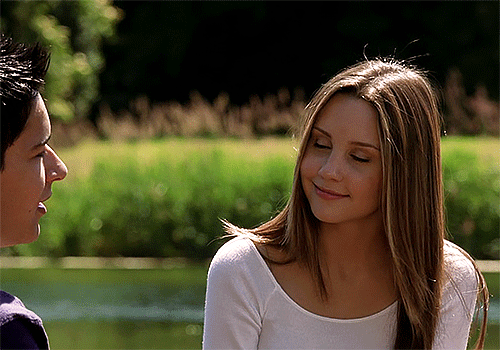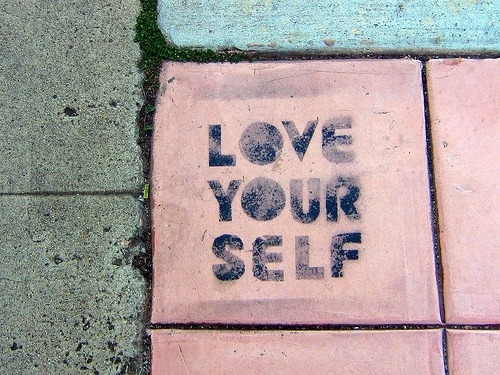Text
Given your character's identity (e.g. based on their cultural, religious, gender, sexual identities) are these theories valid to use? Why or why not?
Vygotsky’s sociocultural theory of development is valid to use in this case. As Daphne’s upbringing and culture is different from that of her fathers and his kin, it explains why Daphne finds a hard time adapting to her new surroundings. Different beliefs and thoughts were instilled into her that makes her much different from her royal counterparts.
4 notes
·
View notes
Text
Is this theory a good “fit” when making a psychosocial-developmental assessment of your character?
The theory is the best fit when making a psychosocial-developmental assessment of Daphne. It explains the relationship between her surroundings and her cognitive processes based on those factors. When she initially met her father, they saw her as not proper and held her to a lower standard. Daphne tried really hard to fit in and once she did she realized that wasn’t the person she wanted to be. Changing her appearance and personality to please others was making her unhappy. There was a case where Daphne had stood up a boy she liked (Ian) in order to attend an upper-class social function and it made Ian disappointed cause he knows she changed. Daphne was in the identity vs confusion stage of life; occurring between the ages of 12 and 18. Teenagers start to ask the question “Who am I?” and develop conscious self. They begin to experiment with different roles and find their identity in society. Cherry, K. (2019, December 7). How Testing Out Different Identities Is a Part of Teenage Development. Verywell Mind. https://www.verywellmind.com/identity-versus-confusion-2795735.
0 notes
Text
Was the theory capable of capturing or explaining all the experiences of your character?
The theory was able to capture most of the experiences of Daphne. As Daphne is seventeen in the movie, we were not able to see the fullness of her childhood and the way she was brought up. But, you do get a good idea that her mother taught her right from wrong and how to be a sincere individual in society. It is evident that her interactions in society influenced the person she is.
0 notes
Text
Did the theory do well in explaining your characters development?
Vygotsky’s theory did work well in explaining Daphne’s development. Growing up in New York City has had quite the influence on her. She is the blueprint for an American girl at the time with the girl next door persona. Daphne lives in the city with her single mother and works for herself which shows that she puts in the work. She experiences emptiness due to the absence of her father due to the fact she's known about him from the age of two. She flew to London in order to meet him. As Daphne learns her father is part of royalty, she tries to get into his social circle and fit in. She was not raised to be a highfalutin so she was looked down upon for being herself.
0 notes
Text
Using your theory as a guide, discuss the major life events, circumstances, inclinations, and predispositions that impact and influence your character’s development
We will consider the various impactful stages in Daphne’s life. The first being her as a child, ages below 10, an in-between and her current awareness. Firstly, since Daphne was not shown as a child, it is assumed that Daphne was engaged with various concepts from Vgotsky, such as scaffolding, which was mentioned before as assistance from an adult when children are engaging in play! (Crowley, 2014) She mentioned that she did everything with her mom. It is okay to assume that her mother is her primary caregiver that assisted her in play. We see that her mother engages in conversation with her. An example of that is her mother explaining that she doesn’t need someone else to know who she is. It is noticed that Daphne is almost a copy, paste of her mother, with the exception of nature-like predispositions, such as how she eats the same things as her father or has his eyes. Those things could not have been taught as they did not know each other. We notice that Daphne has picked up all her mother’s care-free and free-spirited way of living, as those things were learned through experience. Her mother was a singer in a band, Daphne ended up dating someone in a band. It seems through her socialization, she is gravitating to what is familiar or seems authentic to her based on her upbringing/experiences. Daphne arrived in London seemingly mature, soft-spoken, and self-contained. Shortly after, her father, his family, and the entire royal society notices that she is rough around the edges. After causing a chandelier to be shattered, then her father losing votes in an election due to her roughness, she makes a decision to act like an “impeccable young lady.” She was determined to live and act accordingly to the burden of royalty that her family carries. Her decision prompted responses to her desire to change such as “Why try to fit in when you were born to stand out?” from her boyfriend, Ian who was a part of the royal crowd but saw the hypocrisy in it and from her grandmother who explained that a crown doesn’t make the queen. Daphne then recognized within herself, through the help of conversations from peers, her mother, sabotage from her stepmother, Glynnis and observation of the hypocritical royal environment, that it was better to be herself. Daphne, just like her caregiver, as assumed “scaffolding assistant” (the person who assisted her through difficult things that she was no able to do) (Crowley, 2014) . essay, SAGE Publications Ltd. was not anyone’s idea of a lady, but was a lady nonetheless. While these situations don’t all necessarily entail actual child-like play, they are still ways that learning is still occurring through Daphne’s development.
Crowley, K. (2014). Cognition and Memory. In Child Development: a Practical Introduction (pp. 59–64). essay, SAGE Publications Ltd.
0 notes
Text
How would your theorist evaluate or asses the character?
Vgotsky would say that Daphne was consistently advancing cognitively as he thinks that the things you engage with in an environment (culture/language, play) enhances learning. He would describe Daphne as someone who engages in abstract thinking, someone who is able to play pretend, knowing fully that there is a pretend element, as well as the true element that is being noticed (Crowley, 2014) . An example being Daphne dressing up as a princess every year on her birthday. She pretends to be a princess, which is ironic, but she is aware that she is not actually a princess. Concerning her private speech, or her inner voice, which she used frequently, he would say that her language was well developed, so much so that an inner voice had developed.
Crowley, K. (2014). Cognition and Memory. In Child Development: a Practical Introduction (pp. 59–64). essay, SAGE Publications Ltd.
0 notes
Text
Do your thing and don't care if they like it.
Tina Fey, Bossypants
37 notes
·
View notes
Text
Which developmental stage(s) did your character experience?
While Vgotsky does not necessarily have stages, but rather spaces a developing child can be in. He would say Daphne Reynolds would have been within the Zone of Proximal Development throughout the entire film as she had been a developing child for it’s entirety. She is aged 17 and the film began when she was 6 years old. She was consistently being engaged with the rich culture of New York City’s China Town, her mother’s beliefs and attitudes, then the Snooty Debutante’s version of London which featured a new type of culture. She exhibits private speech, so this shows that language was developed.
0 notes
Photo

No matter where you’ve been, where you are, or where you end up, live tobacco-free. Reblog if you won’t let an addiction to cigarettes tie you down.
5K notes
·
View notes
Photo






AMANDA BYNES in WHAT A GIRL WANTS. dir. D. Gordon. (2003)
622 notes
·
View notes











